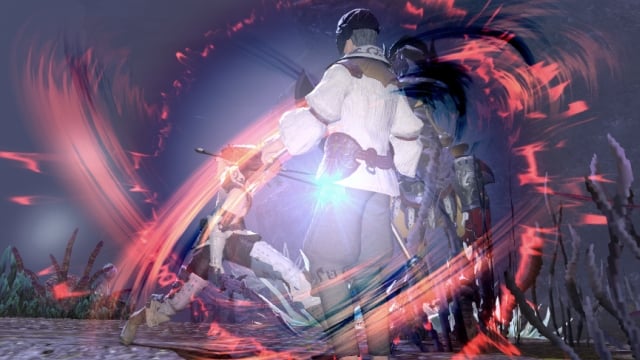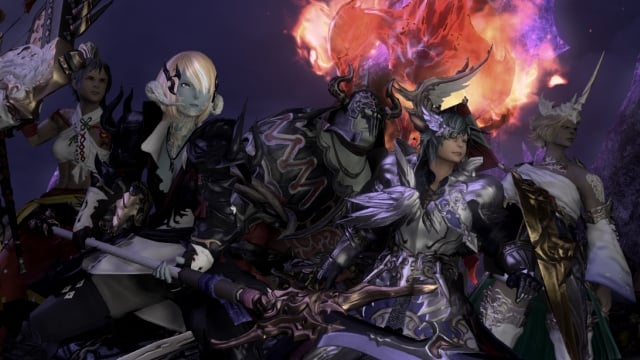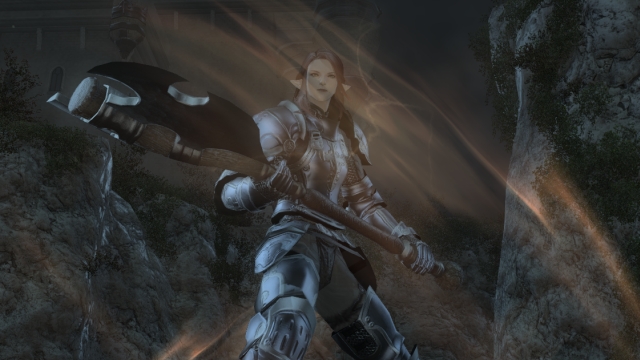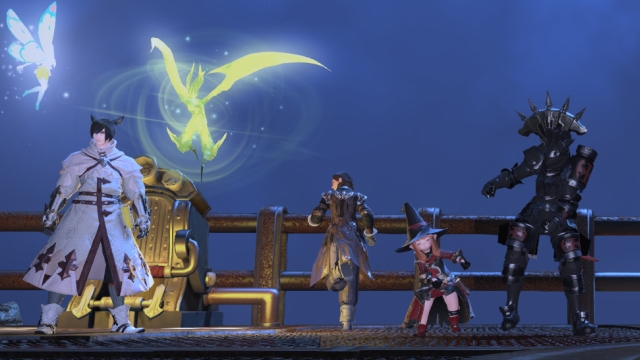Last time around, I took a look at how you can help your guild get better at World of Warcraft. But maybe you don’t play WoW. Maybe you’ve decided to trade in the world of Death Knights and Blood Elves for a world of Dark Knights and male Miqo’te, also known as Final Fantasy XIV. Lots of things are possible. So how do you help your group get better here?
Some of the advice from that last column, obviously, is still applicable. But not all of it. After all, your free company isn’t going to be making use of add-ons (they’re not supported by the game) and is going to have a very different set of content available. So let’s start looking at the different tips to help your guild get better at content in FFXIV.

Run through the mechanics
DPS checks exist in FFXIV, but they’re not usually very stringent. Assuming that your group is wearing the right gear (which is not terribly difficult), the checks should be passed with ease. Far more important is that everyone involved knows the mechanics of a given encounter and is actually paying attention to all of those mechanics. DPS is less likely to spell your group’s doom on difficult content compared to people who are ignoring the mechanics of a given encounter.
Various roles have their own reasons for not paying attention to mechanics. DPS jobs frequently need to either stand in one place (Black Mages, with Bards and Machinists in close second) or maintain contact with the target (Monks, with Dragoons and Ninjas in close second) in order to keep doing damage. Healers often need to make sure that someone is healed before moving to the right spot. And tanks frequently would prefer to soak damage rather than dodging and spinning the boss. All three roles have reasons for ignoring mechanics, and in all three cases the net result is a much harder encounter at best, a wipe at worst.
Thus, part of this process will be a matter of educating players. If your DPS is worried about a point when they’ll need to move, you can start working with them to plan their rotation around that movement; sure, your Monk will lose Greased Lightning, but if the Monk knows it’s coming they can plan accordingly. Healers can practice proactive healing rather than reactive healing, meaning that a spell is going off when the damage spike happens rather than after it happens. And tanks can be prepared to use proper cooldowns if needed or know when moving away from the boss won’t spin it around.
In all cases, a knowledge of mechanics is key. Take the time to study and run through the mechanics involved rather than just hoping to wing it. It’s important to even make this a running theme in all levels of content. Sure, your level 240 Warrior can just soak hits instead of moving, but it’s better to get into the habit of dodging than just assume you can soak everything.

Prepare for alternate approaches to content
In a given stretch of any content, you’re locked into one role once you’re in. You queued up as a Ninja, you’re playing a Ninja until the duty is finished. But that doesn’t mean that the group as a whole should plan around you forever being a Ninja, nor does it mean that you should set your heart on always playing Ninja forever.
You may be at your best playing DPS, but there are lots of different varieties of DPS, and depending on content your group may need more or less of a given sort. Having other jobs ready to go means that content is more accessible for everyone. Very few jobs share equipment across roles (the sole exception are Ninja with ranged physical DPS; you can use your Dexterity accessories on both), but even having multiple options within a set role can be helpful. You might be playing as a tank in multiple parts of Alexander, but two fights are easier with a Paladin tanking and two more are easier with a Dark Knight tanking; being able to swap between the two can give your group a bit more in the way of options.
Swapping between roles is just as valid, though; perhaps in some fights you’re tanking and in others you’re healing. This is especially useful if a given fight has mechanics that one player cannot seem to master which only target or involve a specific role. Back when Twintania was the big roadblock for players, everyone needed to be adept at dodging meteors; by contrast, only tanks and healers need to know how to handle certain parts of the Ozma fight in Weeping City. If you can handle that responsibility and another player cannot, it might be to your advantage to take the tanking job for that run.
Obviously, this also creates a gearing issue, since it’s not usually possible to have fully upgraded gear for multiple jobs at the same time. But as noted above, knowing mechanics is usually a bigger roadblock than raw DPS; a solid rotation means that you shouldn’t be struggling with most checks anyhow.

Make use of the Duty Finder
It might seem weird, but one of the best features of the game is the fact that you can group up into half of the group required to clear something and then queue for it. And it’s a great training mechanism for difficult content, because you can be assured that some of the random people you wind up in a room with are going to be absolutely bonkers. Healers will pull things, Black Mages will pull things, people will stand in bad locations, and the entire group will behave in ways that make you think that they’re rushing to run up their repair bills for no readily apparent reason.
Even when you don’t have a group full of active impediments to clearing content (which is usually the case, honestly), queueing with random people is useful because it gets you out of your comfort zone and forces you to think and adapt on the fly. You can’t just assume that you will be the tank to pick up the adds; you might need to tank the boss. Your other healer might do things in a way that you’re not expecting. You’ll have to adapt your strategy on the fly, talk with your other players, and get a sense for each fight as a whole.
This is particularly good because a lot of fights do require you to have a comprehensive picture of what’s going on across the battlefield. No, you might not need to tank an add, but you should know how the add ought to be tanked if that suddenly changes. Knowing what you need to do and what the rest of the group needs to do will give you some advantageous perspective on the game as a whole — and it will help you not only perform your own role more elegantly, it’ll also enable you to offer feedback to your fellow players more efficiently. A worthwhile use of your time.
Of course, there are more games than just these two in the world; the next time around, let’s take a look at more general and wide-ranging tips for helping your group get better at your game of choice.







Published: Jun 29, 2016 11:23 am